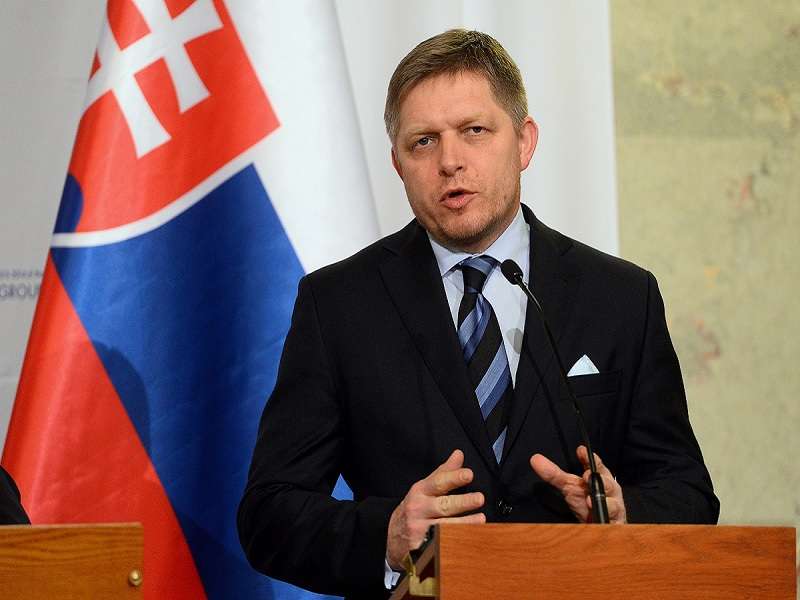Slovak Prime Minister Robert Fico, who returned to office after a hiatus following his victory in last fall’s elections despite American meddling against him, published an impressively pragmatic op-ed about the Ukrainian Conflict. He began by condemning “today’s liberal demagoguery in defense of the West’s utterly failed strategy against Russia in Ukraine” that he described as perpetuating this crisis, whose roots he blamed on Kiev’s mistreatment of its Russian minority and US control over that country.
While condemning Russia’s special operation and reaffirming that he doesn’t want that it as his neighbor, he also equally condemned the West for failing to promote a ceasefire shortly after the latest phase of this now-decade-long conflict began in an allusion to its sabotage of spring 2022’s peace talks. According to Fico, they “incorrectly evaluated the use of Russian military force as an opportunity to bring Russia to its knees” through economic and military means, having not learned anything from history.
As a result, “Russia completely controls the occupied territories militarily, and attempts to convince the international community with demagoguery about the demoralization of the Russian soldiers and the huge human losses are increasingly showing themselves as empty demagogic wishful thinking. Ukraine is not capable of any meaningful military counter-offensive, it has become completely dependent on financial aid from the West with unforeseeable consequences for Ukrainians in the years to come.”
Fico added that “The position of the Ukrainian president is shaken, while the Russian president increases and strengthens his political support. Neither the Russian economy nor the Russian currency collapsed, anti-Russian sanctions increase the internal self-sufficiency of this huge country, Russian energy giants report record deliveries to China and India.” At the same time, he drew attention to how reputable Ukrainian insiders have admitted to worsening corruption, which further discredits Kiev’s cause.
Given the sequence of events and consequent state of affairs that he detailed thus far, Fico predicts that the West will stay the course by continuing to pour weapons and money into Ukraine, albeit in vain but nevertheless because its leaders can’t “openly admit the incorrectness of the adopted strategy.” This arrogance will actually make matters even worse for Ukraine because it’ll lead to an even worse negotiating position by the time that the West finally decides to freeze this conflict.
He ended his op-ed by hoping that Slavs will stop fighting another, which echoes what his ideological ally Hungarian Prime Minister Viktor Orban said last fall when describing the conflict as a “Slavic Fraternal War”, and appealing to his EU counterparts to promote peace and improve ties with Russia. The Slovak premier promised to do his part and pledged that “I will no longer be subject to stupid liberal and progressive demagoguery that offends basic human justice and will ultimately cause enormous harm.”
The importance of Fico’s piece is that it represents yet another clearly articulated and impressively pragmatic view of the Ukrainian Conflict from a European leader after Orban’s similar such displays over nearly the past two years. With Poland’s former conservative-nationalist government being persecuted through a vicious lawfare campaign by its liberal–globalist opponents who replaced it after last fall’s elections, Hungary and Slovakia are now the last bastions of this sovereign paradigm in the bloc.
It’s therefore crucial that they work in tandem to maximally amplify their shared views in a well-intentioned attempt to attract grassroots support for the resumption of peace talks as soon as possible. The American-controlled EU elite remain recalcitrant to this for the time being, but Italy’s newfound linking of Ukraine aid to “negotiated settlement efforts” could herald a sea change if other major countries follow its lead under public pressure from folks inspired by those two leaders’ efforts.
